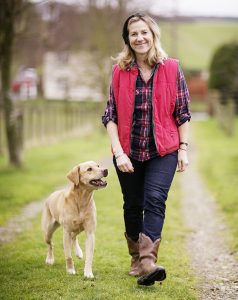Choosing a Dog Trainer.
At Holidays4Dogs we publish a lot of helpful articles on training and other dog related subjects. We often recommend the assistance of a good dog trainer to help with various issues dog owners might be having. This is because there is really no substitute for practical help from an experienced trainer. However, choosing the right trainer for you and your dog can be hard. We offer some tips and advice on choosing a dog trainer.
Since the profession is not yet regulated, owners should take care before choosing a dog trainer, or enrolling on a course. It’s sensible to check out the philosophy and methods a trainer has, even if they come recommended.
Buyer beware.
A few months ago, I had the displeasure of bumping into a local dog trainer who was in the process of instructing a lady with a Labrador. The trainer had chosen to conduct her ‘lesson’ in a public place and this was how I was able to witness her ‘methods’. As I passed the trainer and her client, the trainer yanked the dog so hard, multiple times, that I had to politely intervene. These ‘old school’ methods of dog training are outdated and impact on a dog’s health and welfare.
One of the most important clues indicating a good dog trainer is their use of reward based training. Reward based training is a scientific way to help animals understand what we want of them. A reward might be food, or a toy.
Rewards are used to increase the behaviour we want to see. Alternatively, rewards are withheld, in order to decrease the behaviour we do not like. This is positive reinforcement training and is a term would- be clients should look out for when choosing a dog trainer.
Alarm bells should ring a trainer describes any of these things;
-
‘Traditional dog trainer or, ‘uses traditional methods’ – the problem with this is that it infers an old style of dog training. This may involve more aversive techniques such as collar yanks.
-
‘Pack leader’ – again this infers force. (It is also scientifically incorrect when it comes to hierarchy in the dog world). Avoid anyone who uses this term when you are choosing a dog trainer.
-
‘Obedience trainer’ – this one is more difficult because it doesn’t necessarily suggest the trainer is likely to use aversive methods. However, good training is about so much more than ‘obedience’. Many people compete in ‘obedience competitions’ with their dogs, but this is quite a specific discipline. It may be rather limiting for anyone looking to address more complex behaviour issues.
‘Obedience’ is also becoming a less favourable term for how we describe the relationship with our dogs. It is important that a good trainer is, not only aware of these changes, but has empathy and understanding for the way thought patterns and training approaches have positively changed in a way that vastly improves the outcome for both dog and owner.
-
‘E-collars’ – absolutely avoid anyone who advocates the use of electric (static) collars. These collars have been proven to have a detrimental effect dogs. As such, they have been banned in Wales under the Animal Welfare Regulations (Wales) 2010. Lobbyists hope that England will soon follow suit. It is certainly long overdue.

If you are choosing a dog trainer, or a dog training class, ask around for recommendations. Ideally, sit in on one of their training sessions before signing up.
This shouldn’t be a problem for most reputable trainers. A dog trainer should have a good understanding of behaviour principles, but should be professional enough to refer you to a qualified behaviourist, if the work is beyond their scope. In addition, an trainer should have experience with lots of different breeds.
Conclusion.
Choosing a dog trainer might seem like a minefield, but by keeping in mind a few of our points, you are more likely to find a skilled trainer to help you. Avoid anyone who offers a ‘quick fix’ or a ‘cure’ as this might not be realistic. Above all, any dog trainer should have a clear affinity with dogs, as well as being able to form a good relationship with owners in order to help them achieve the best for their dogs.



